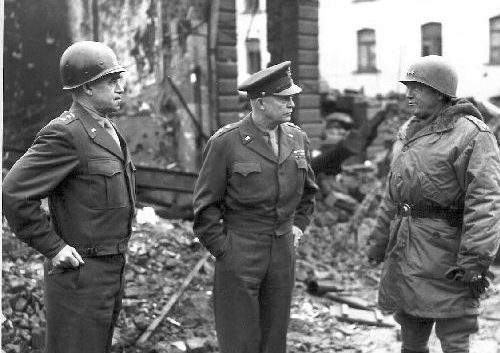
General George S. Patton once said that “By perseverance, and study, and eternal desire, any man can become great.” These principles of perseverance, study, and desire are cornerstones of any individual, group, or organization desiring to obtain and sustain success. While some may argue that General Patton lacked the ability to empathize with people, most can agree that the man knew how to move an army in order to achieve operational excellence.
In the construction industry, a need for this same operational excellence becomes evident when reflecting on the final decades of the twentieth century, a time where stagnancy pervaded the industry. Construction companies were under-performing, the expected turnover left much to be desired, and clients often felt the pains of mismanaged projects. These issues revealed a glaring need for a a new model of operational excellence.
Operational excellence encourages companies to enhance the client experience, minimize cost, and cut wasteful processes in terms of managing resources and materials, allowing value to be restored and delivered to clients. Coming out of the Great Recession of the early twenty-first century, adopting this new practice in our industry became necessary in order to meet the demands of the market. In a time where clients had tighter margins and technological advances were happening at an ever increasing rate, it was imperative that construction companies become experts on this new model, have a great desire to learn its principles, and persevere through the slow, arduous process of applying it within all disciplines throughout their organizations.
There are many facets where operational excellence should be applied, but just as General Patton believed in the three principles of perseverance, study, and eternal desire, there are three universal tenants to ensure operational excellence on construction projects that must be executed and measured on a consistent basis. These universal tenants of operational excellence are:
- Collaboration. In order to achieve and maintain excellence within any successful organization, there must be collaboration. Clients must know of pending changes and issues. Designers have to seek input from contractors in order to provide an exceptional finished product. Contractors must look beyond what they are doing today so they can positively impact the schedule and efficiencies on a given project.
- Standardization. Far too often leaders are reactive, rather than proactive, when it comes to meeting the needs of those they serve. Processes and procedures found in countless operation manuals are typically the result of a problem that had to be solved, which is why it is critical for attention to be consistently given to improving quality through standardization. When processes/procedures and means/methods of operational excellence are all standard, the improved quality of construction is directly correlated. Standardized tasks become muscle-memory and are easily tracked/measured, saving time and reducing error.
- Development. There is no doubt that real dollars are tied to the development of team members. However, the importance of investing in staff development cannot be overstated if our industry wants to achieve and maintain operational excellence. Our team members are our most critical resource – the one companies should be continually investing in to grow and retain. The quality of our team members are directly related to the predictable success of our projects. Therefore, providing training and committing to development opportunities quickly produces positive results across the construction spectrum.
More than ever, clients want things done right, and they deserve nothing less. Time has never been more expensive, and we can’t retrace steps. A steady focus on the importance of completing quality projects on time while creating strong, positive relationships with those in which we serve has never been more important.
Companies that are finding success today are the ones that made the decision to embrace their potential and move past the old status quo by collaborating, setting high standards, and developing their people. They embraced operational excellence, realizing how critical it was to their organization. They realized that it is the driving force that produces better results in terms of client experience, cost efficiency, productivity and innovation.
A desire for excellence is what separates the good from the great. My hope is that, just as General Patton did, our industry continues to pursue the principles of perseverance, study, and desire so that we can provide our clients the operational excellence and client experiences they deserve.
 Jason Dunnam provides day-to-day leadership to the construction operations team in Dallas. He has nearly 20 years of experience, including as a senior superintendent. Jason lives in Dallas, but returns home to Seneca, Missouri, every chance he gets. He enjoys the outdoors, hunting, serving his church and community, and spending time with his three adult sons.
Jason Dunnam provides day-to-day leadership to the construction operations team in Dallas. He has nearly 20 years of experience, including as a senior superintendent. Jason lives in Dallas, but returns home to Seneca, Missouri, every chance he gets. He enjoys the outdoors, hunting, serving his church and community, and spending time with his three adult sons.
